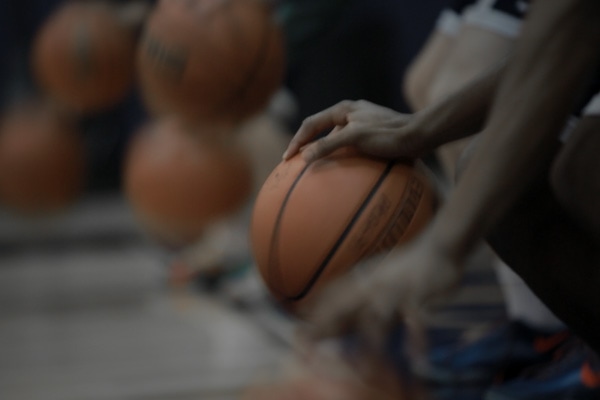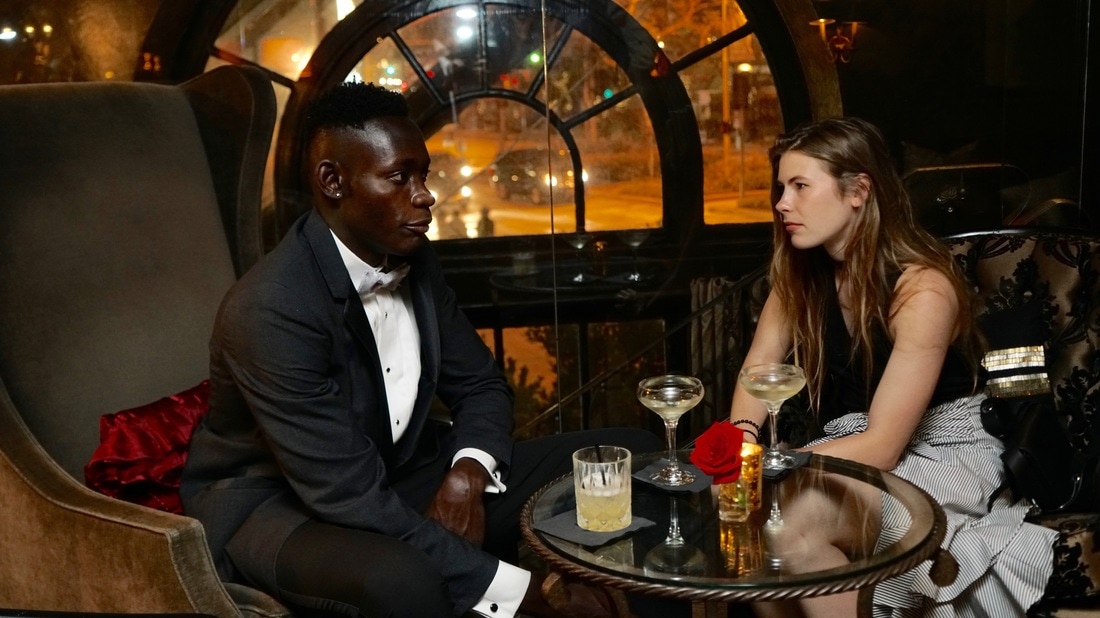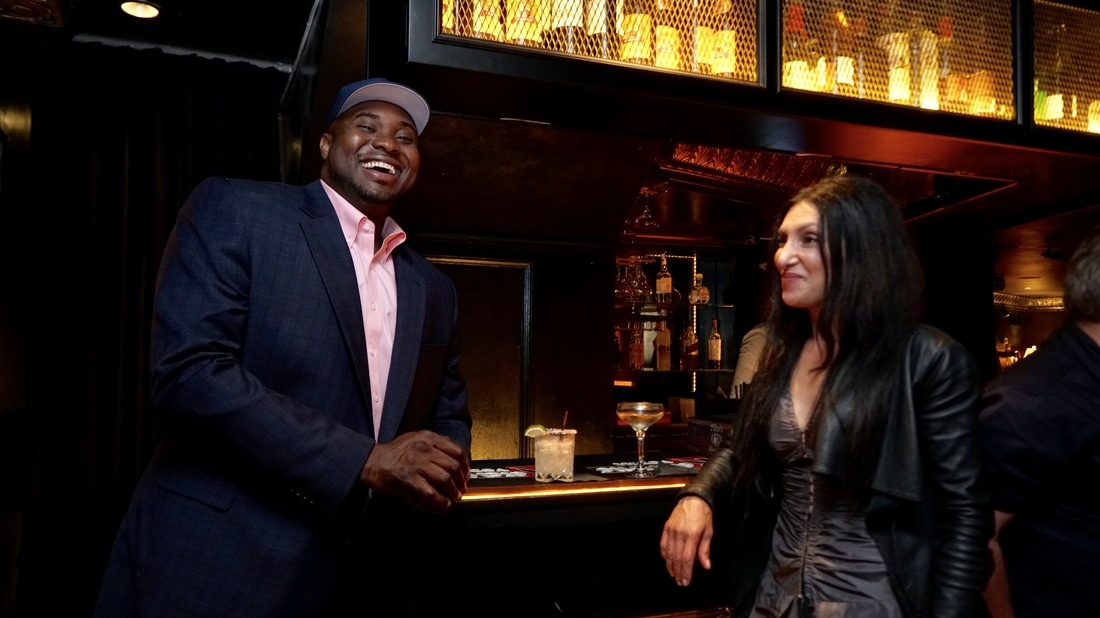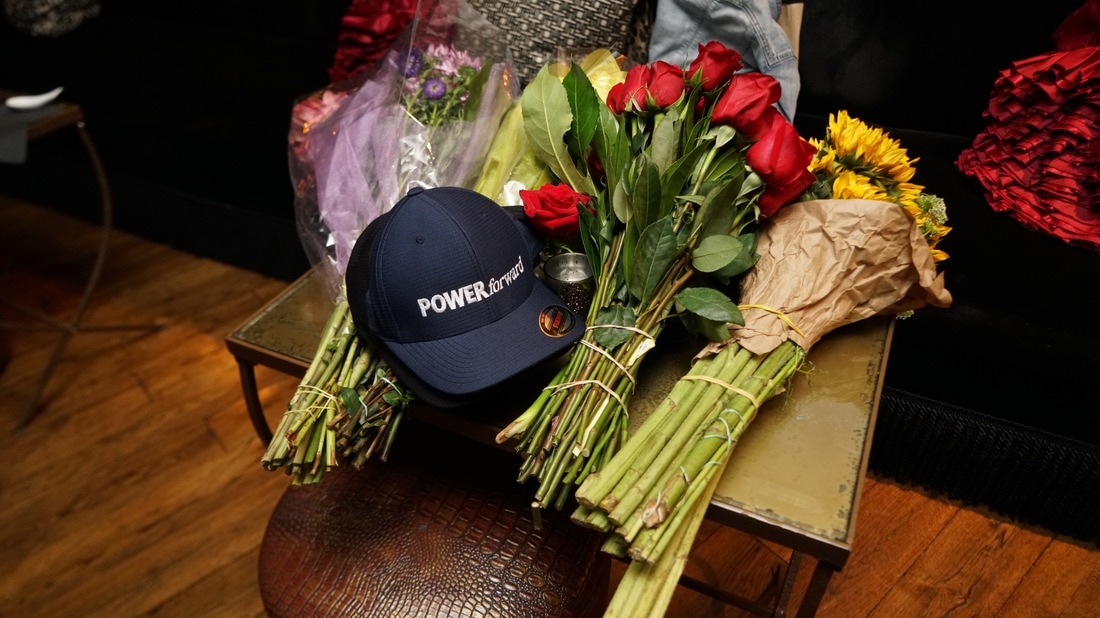|
Doc tells story of one man's tall order -- using basketball as a means to transform his country: 'When you help one Haitian kid you are actually helping rebuild our country'
To make a true vérité film -- with no archive video, no interviews, no graphics, just "captured moments" -- strikes me as a very difficult proposition. Yet Leyla Nedorosleva has managed to do it, in her directorial debut no less.
Nedorosleva's film Two Four Six debuted at the LA Film Festival last week, documenting the efforts of former pro basketball player Pierre Valmera to bring poor Haitian kids to the United States to earn an education while playing basketball. It is composed entirely of "experiential video" (to put it one way) -- Valmera hustling to get scholarships for young prospects, Haitian kids trying to adjust to life in America, Valmera conducting basketball camps in his native Haiti to develop talent, and on-court action with players who may one day make it to the NBA. It's my time to go out there and do something for the people.... This is my dream.
Valmera, who is known in Haiti by his nickname "Titanic," formed the non-profit PowerForward to help bring as many budding basketball stars to the U.S. as possible. He told Nonfictionfilm.com his goal is not so much to make future NBA champions -- though undoubtedly he wouldn't mind that -- but to secure an education for young people so they can become a vital part of their country's future.
"Education is the best way to rebuild Haiti," he told us. "By educating one of us now we become new role models -- no longer some corrupted guy in Haiti government. Now we are the face, the role model. Kids say, 'Oh my gosh, I can look up to this guy.' Doesn't matter if he's rich. Doesn't matter how much he has. But [kids will say], 'I want to be in his position to get a great education.' I want kids in Haiti to believe 'success is education.'"
Two Four Six follows several Haitian teens brought to the U.S. as part of PowerForward's program. Among them is Schnider Herard, a "young man struggling to cope beneath the pressures of his own talents," as the PowerForward website puts it. In the film, Valmera labors to get the young man to focus on his studies and improve his basketball skills. Glimpses of the extreme poverty of Haiti suggest the difficult circumstances that Herard and kids like him have faced growing up.
"He comes from a tough neighborhood. His mother died at a young age. He never really had that mother love," Valmera observed during our conversation after the film's world premiere. "With all the headaches he gave me through the years, now he's one of my favorite human beings, to tell you the truth. He's really a special young man." Another of the teenagers in the film, Pierre Joseph, attended the premiere in Culver City. Two Four Six shows him back home -- living with his mom in a metal shack outside Port-au-Prince. Too poor to afford bus transportation to get to a basketball court, he walks the long distance there instead.
Joseph now plays high school ball in the U.S. Herard plays at Mississippi State University, after graduating high school in Texas. Valmera also counts among his successes the Haitian-born NBA player Skal Labissière, who's with the Sacramento Kings.
Valmera necessarily looks for prospects who are unusually tall and athletic. Joseph, for instance, stands about 6'10" (even taller than Valmera, who is a mere 6'8"). But his non-profit has begun to expand its mission to benefit all kinds of children, he said. "We're not just looking for big, big kids," he stated. "Now what we're trying to do as a program [is] to find schools that are in bad shape and take over. We have one school in Port-au-Prince now with 150 students. So we're going to raise money to pay the teachers' salary -- a lot of times teachers don't show up because they don't get paid." He added, of his charitable efforts, "For the first 14 years it was all basketball. Now it's everything. I have to start somewhere."
Documentaries of any genre typically don't work unless the central character is a compelling one. Valmera possesses enough charm to rival a Charles Barkley, and it's not difficult to imagine how he manages to persuade others to help children in Haiti.
"This is my dream," he told Nonfictionfilm.com. "I don't want the program to be big -- have a big office, 'Oh, look at this amazing program!' I want to be the non-profit that saves more lives. That's what matters to me. If people really want to change lives please come join us." Valmera said he makes his mission very clear to the kids in his program. "I'm very hard on them. I said something to them one time -- I hope I don't offend people, [make] people think I'm bad. I said to them, 'Guys, I don't care about you guys.' When I said that they were extremely shocked. 'You helped me! You don't care about us?' I said, 'No. I love Haiti. Because I feel like you are the future of my country, that's why I help you... Remember, I'm not doing this for you. I'm doing this for Haiti.'" |
AuthorMatthew Carey is a documentary filmmaker and journalist. His work has appeared on Deadline.com, CNN, CNN.com, TheWrap.com, NBCNews.com and in Documentary magazine. |
- Home
- News
- Videos
-
Galleries
- 2019 Tribeca Film Festival
- Full Frame Documentary Film Festival
- 2019 SXSW Film Festival
- SXSW 2018 Gallery
- 2019 Sundance Film Festival
- Outfest 2018 Photo Gallery
- Outfest 2017
- Sundance 2018 Photos
- 2017 LA Film Festival
- 2017 Cannes Film Festival
- Tribeca Film Festival 2017
- SXSW 2017 Gallery
- 2017 Berlin Film Festival
- Sundance 2017 Gallery
- 2016 Los Angeles Film Festival
- Cannes Film Festival 2016
- SXSW 2016 Gallery
- Berlinale 2016 Gallery
- Sundance 2016 Gallery
- Filmmaker Gallery
- About
- Contact
Proudly powered by Weebly
- Home
- News
- Videos
-
Galleries
- 2019 Tribeca Film Festival
- Full Frame Documentary Film Festival
- 2019 SXSW Film Festival
- SXSW 2018 Gallery
- 2019 Sundance Film Festival
- Outfest 2018 Photo Gallery
- Outfest 2017
- Sundance 2018 Photos
- 2017 LA Film Festival
- 2017 Cannes Film Festival
- Tribeca Film Festival 2017
- SXSW 2017 Gallery
- 2017 Berlin Film Festival
- Sundance 2017 Gallery
- 2016 Los Angeles Film Festival
- Cannes Film Festival 2016
- SXSW 2016 Gallery
- Berlinale 2016 Gallery
- Sundance 2016 Gallery
- Filmmaker Gallery
- About
- Contact





 RSS Feed
RSS Feed